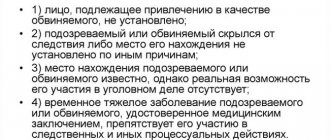The procedure for familiarizing yourself with the materials of a civil case
According to paragraph 1 of Article 35 of the Code of Civil Procedure of the Russian Federation, persons participating in a civil case have the right to familiarize themselves with the materials of the civil case , make extracts from them, make copies, file challenges, present evidence and participate in their study, ask questions to other persons, participants in the case, witnesses, experts and specialists; submit petitions, including the request for evidence, and use other procedural rights provided by the legislation on civil proceedings. Persons participating in the case must conscientiously use all their procedural rights.
Our services for familiarization with case materials
- preparing and submitting a petition to the court to familiarize itself with the case materials;
- control over the receipt of a request to the court to familiarize itself with the case materials;
- familiarization with the case materials by making photocopies;
- transfer of photocopies of case materials to a person participating in the case, during a personal meeting, by e-mail, or by post.
Cost of getting acquainted with the case
| Preparation of an application for familiarization + power of attorney + filing | 1,000 rub. |
| Familiarization with materials, including photography, the cost includes up to 3 volumes, for an additional volume + 1,000 rubles. | 5,000 rub. |
| |
What are the consequences of issuing an order?
The execution of orders in court is allowed only in relation to undisputed debts and obligations. The law includes loans and microloans, debts on notarized documents, collection of alimony, non-payments for housing and communal services, and some other obligations. In this case, the total amount of recovery in writ proceedings cannot exceed 500 thousand rubles.
If the nature of the obligations allows for the issuance of an order, then the creditor will choose to apply for it out of almost 100% of the possibilities.
Why? Yes, because in the absence of objections from the defendant, with this judicial act you can:
- contact the FSSP to initiate proceedings, and also obtain the seizure of accounts and bank cards, and begin forced debiting of funds from the debtor’s cards;
- submit a document to the debtor’s place of work to begin deductions from wages;
- send the order directly to the bank where the defendant has accounts, deposits and cards.
In any case, the presence of an order threatens the defendant with penalties. At the same time, the debtor may not immediately learn about the issuance of a judicial act - due to the nature of the enforcement proceedings. Although the judge is required to send a copy of the document to the other party.
But a letter from the court can take a long time to arrive in the mail or even get lost. If the debtor changed his residential address and did not notify the registration authorities about this, then the letter will be returned back to the court.
If you find out about the collection in time, you can cancel the order in a simplified manner. The law gives 10 days to prepare and file objections to the order. If they arrive at the judicial authority within the time period established by the regulations, the order will be cancelled. This is a legal requirement.
Cancellation of the court order. Article 128 of the Code of Civil Procedure
If the debtor’s objections regarding the execution of the court order are received within the established period, the judge cancels the court order.
In the ruling on the cancellation of the court order, the judge explains to the claimant that the stated claim can be presented by him in the manner of claim proceedings. Copies of the court ruling to cancel the court order are sent to the parties no later than three days after the day it was issued.
Read completely
Source
If the 10-day period is missed for valid reasons, it can be restored. To cancel an order, you need, at a minimum, to know the document number and the date it was issued, as well as (it would be nice) the amount of the penalty. Ideally, get a copy of the document in order to attach it to objections and complaints.
The procedure for filing an application for familiarization with the materials of the trial in the district court
According to paragraph 16.1 of the Instructions for judicial records management in the supreme courts of republics, regional and regional courts, courts of federal cities, courts of the autonomous region and autonomous districts, the procedure and timing for issuing court cases (other materials) for review is established by the chairman of the court.
Note: Request for familiarization with the case in court.
How are court cases issued?
Court cases (other materials) are issued for review at the court premises on the basis of a written application and upon presentation of the following documents:
- accused, defendants, convicted, acquitted, persons against whom proceedings are ongoing for an administrative offense, victims, parties to the case, third parties, legal representatives in criminal, civil, administrative cases and cases of administrative offenses, applicants and other interested parties in cases of special proceedings and administrative cases, civil plaintiffs, defendants in criminal cases - an identification document in accordance with Appendix No. 1, and their representatives, defenders - also a power of attorney, issued in accordance with the requirements of the law;
- for lawyers acting in criminal, civil, administrative cases and cases of administrative offenses - warrants of the relevant legal education and identification cards and (or) lawyer certificates;
- other interested parties acting in criminal, civil, administrative cases, cases of administrative offenses - identification documents and powers;
familiarization of the above persons with the materials of the court case (other materials) is carried out on the basis of their written application, on which the judge in whose proceedings the court case is (or was) and, in his absence, the chairman of the district court (or his deputy) or another person authorized by him the person makes an appropriate note about the instruction to the employee of the district court staff to familiarize himself with the case materials. This application is filed in the file, and if a power of attorney is presented, a copy of it is also attached to the file.
Familiarization with cases (other materials) takes place in a district court premises specially equipped for this purpose in the presence of an authorized employee of the district court apparatus in conditions that exclude the seizure, damage, destruction of case materials, as well as the introduction of corrections and additions to them, and their transfer to another person.
For reference: District courts of Moscow.
A note is made on the information sheet regarding familiarization with the case.
After familiarizing yourself with the court case (other materials), an authorized employee of the court staff, in the presence of the person who has become familiar with the court case (other materials), checks the status of the case and the presence of all documents in the case, makes a note in the application (Form No. 50) to the effect that that the case has been returned. If, after the return of the case, an authorized employee of the court staff reveals that the case materials have been seized, damaged, as well as corrections and additions have been made to them, the chairman of the court or his deputy is immediately informed about this.
The procedure for issuing court cases located in the archives of a district court, as well as making copies from them, are regulated by the Instruction on the procedure for selecting documents for storage in the archives of federal courts of general jurisdiction, their compilation, recording and use, approved by order of the Judicial Department at the Supreme Court of the Russian Federation dated 28 December 2005 No. 157.
For reference: Statute of limitations in criminal cases.
Is someone required to notify the debtor that a court order has been issued?
Yes, I must. Since the debtor (defendant) is a full participant in the court case. Therefore, he will definitely be sent all the main documents related to the collection. Since writ proceedings do not provide for holding meetings, subpoenas and notices are not sent to the parties. But the judge will definitely send a copy of the order to the debtor, since the determination of the possible deadline for filing objections depends on the date of its receipt.
What the claimant must do
When filing a statement of claim, the plaintiff must send a copy of this document to the defendant. If the documents do not contain evidence that the claim was sent to the defendant, the judge will refuse to initiate the case or simply suspend the case for an indefinite period.
In writ proceedings, everything is a little different. This is how the process goes when issuing a court order:
- the claimant sends the application and other documents directly to the court;
- the collector is not obliged to notify the debtor of the filing of the application in any way;
- Since writ proceedings do not involve court hearings, the applicant and the defendant do not meet at all during the collection process.
It is the responsibility of the collector to indicate the mandatory identifiers of the defendant, his residential address or location. Firstly, this is necessary to send a copy of the order to the address where the document will find the debtor. In addition, the court order must indicate the exact data by which the bailiffs will identify the debtor.
What does the law oblige the judge to do?
The judge presiding over the case is required to send certain documents to both parties. When issuing an order, the responsibilities of the magistrate include:
- sending a copy of the order to the debtor within 5 days after its issuance;
- checking the date of receipt of a copy of the document or the reasons for non-receipt in order to make a decision on issuing an order to the recoverer;
- issuing a ruling to cancel the order if the debtor submits objections in a timely manner.
Judicial proceedings involve maintaining case files, including those related to issued orders. Case cards are available on the websites of judicial authorities to everyone. It is impossible to read the personal data of the participants in the process on the court’s website, but you can get general information about debt collection. In particular, the case card will show the number of the order and the date of its issue, as well as information about the judge.
Also, at the request of the participants in the process, the judge is obliged to provide the case materials for review and for making copies. To submit such an application, you need to know the case number.
How are bailiffs informed about an order?
For the bailiff, the debtor is the most important participant in the proceedings.
Therefore, Law No. 229-FZ obliges the FSSP employee:
- send the debtor a copy of the resolution to initiate the case (among other things, the contents of the resolution will indicate the number of the judicial act and the date of its issuance);
- post information about each production in the Data Bank on the FSSP portal;
- provide the debtor with case materials for review, provide information upon request by mail, through government services or at a personal meeting.
You need to find a court order by its number.
This can actually be done by searching in the case card on the court’s website, in the Data Bank on the FSSP portal. You can familiarize yourself with the contents of the order in the materials of the court case or enforcement proceedings. A copy of the order can be obtained from the FSSP or from the magistrate's court.
A court order is a direct enforcement document. It is submitted to the FSSP by the claimant. Accordingly, the document will be kept on file until the end or termination of the proceedings.
Procedure for familiarizing yourself with the materials of a civil case
The procedure for familiarizing yourself with a case is regulated by the Civil Code of the Russian Federation and includes several successive stages presented in the list:
- A person interested in receiving information is obliged to draw up and submit a petition requesting the provision of the necessary information regarding the current legal proceedings.
- After accepting the application in the office of the court, responsible employees must immediately provide the necessary materials to the applicant, if he has the right to receive them. In some cases, when there are circumstances that prevent the immediate issuance of paper, the applicant will be assigned a specific date and time when it is necessary to reappear at the government agency. Typically, this period of time lasts no more than 3 days from the moment of initial communication with employees of the court district.
- According to Article 34 of the Code of Civil Procedure of the Russian Federation, information is provided in a specialized room and only in the presence of a responsible court employee. The document is not issued in person, but in the petition, a citizen can ask permission to take a photograph of the paper of interest or make a blueprint from it, if the corresponding equipment is on the balance sheet of the judicial authority. The original, stored in the court archives, is reliably protected from the deliberate theft of part of the materials or its destruction in order to conceal a number of circumstances of the case.
- A person who is granted access to a civil case has the right to study it without time restrictions within the work schedule of the institution, including lunch breaks.
- If the number of case materials does not allow for review within one working day, as a rule, the applicant draws up and coordinates with the court office a schedule of consideration by days and hours so as not to cause discomfort to employees and has time to thoroughly analyze the materials.
What documents do you need to have with you?
Identification documents of a person applying for the issuance of court cases (other materials) are:
- passport of a citizen of the Russian Federation;
- temporary identity card of a citizen of the Russian Federation in form No. 2P (for citizens who have lost their passport, as well as for citizens for whom additional verification is carried out before issuing a passport);
- identification card or military ID of a military personnel;
- seaman's passport;
- general foreign passport (for Russian citizens who have arrived for temporary residence in the Russian Federation and permanently reside abroad);
- a passport of a foreign citizen or another document established by federal law or recognized in accordance with an international treaty of the Russian Federation as an identity document - for foreign citizens;
- temporary residence permit, residence permit;
- refugee certificate;
- certificate of consideration of an application for refugee recognition;
- a document issued by a foreign state and recognized in accordance with an international treaty of the Russian Federation as an identification document of a stateless person; other documents provided for by federal law or recognized in accordance with an international treaty of the Russian Federation as identity documents - for stateless persons;
- lawyer's certificate;
- editorial ID for a journalist;
- other identification documents.
How does one get acquainted with materials during a trial?
How to review a case in court? In accordance with Article 35 of the Civil Code of the Russian Federation, as mentioned above, no one prevents the plaintiff or defendant from familiarizing themselves with the case directly during the court hearing. To initiate this procedure, the person concerned must complete the following steps:
- How to get acquainted with the case materials in court? The easiest way is to directly put forward a demand to the judge orally, which he formally does not have the right to refuse.
- In general, the court secretary will hand over all materials to the participant in the case for consideration, and the government representative will be forced to announce a break. If the amount of information requested is too large, the court hearing is postponed to another date.
- If the judge denies the applicant's oral request, the latter can always draw up a handwritten request and ask for it to be entered into the record, and the papers will be submitted for consideration in any case.








